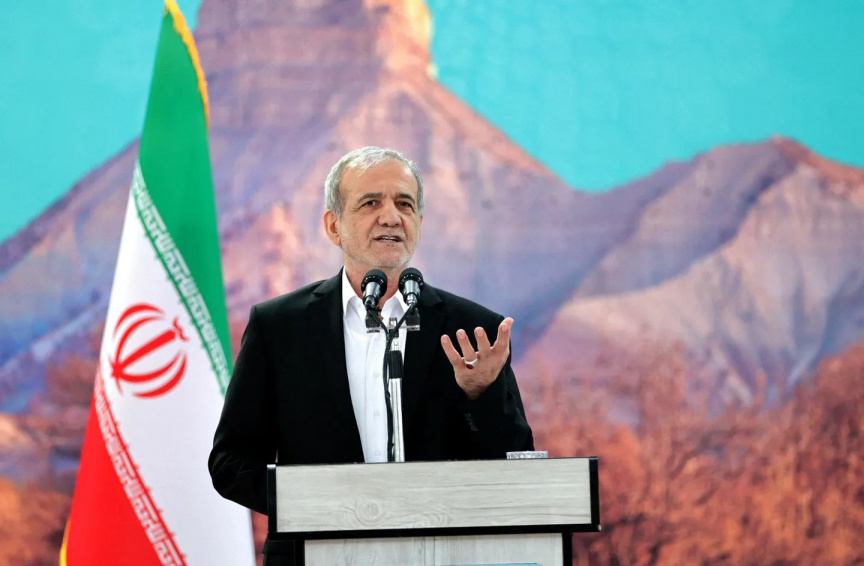
Iranian President Masoud Pezeshkian: Pezeshkian has warned that the capital, Tehran, could face severe water shortages and may even have to be evacuated if rainfall does not occur soon. (Photo/Via TRT)
Iranian President Masoud Pezeshkian has warned that the capital, Tehran, could face severe water shortages and may even have to be evacuated if rainfall does not occur soon.
Speaking during a visit to the city of Sanandaj in western Iran on Thursday, Pezeshkian said the government was confronting a combination of economic, environmental, and social crises.
He said that high prices and inflation were the result of both domestic policy failures and international sanctions, a local daily Etemad reported.
“High prices and inflation are the fault of both the parliament and the government. There are efforts underway, but limited financial resources mean projects remain unfinished,” he said.
Turning to the drought-induced water crisis, Pezeshkian warned that Iran faces serious natural challenges, including dwindling rainfall and water resources.
“If it doesn’t rain, we will have to start restricting water supplies in Tehran next month. If the drought continues, we will run out of water and be forced to evacuate the city,” he said.
The president stressed the urgent need for better management and conservation of water and energy resources, describing the situation in Tehran as “alarming.”
Water crisis in Tehran
Tehran’s water supply depends on five main dams, Lar, Mamlu, Amir Kabir, Taleqan, and Latyan, with Amir Kabir being the largest.
However, Iran has suffered a sharp decline in rainfall over the past five years, and meteorological data show that precipitation in Tehran this year is about 40 percent below seasonal averages.
The lack of rainfall, particularly in spring and summer, has caused reservoir levels to drop drastically, affecting both surface and groundwater reserves.
The Tehran Water Authority warned on July 20 that the reservoirs supplying the capital had reached their lowest level in a century due to prolonged drought.
Intermittent water cuts have already been implemented during the summer months. On November 3, Behzad Parsa, head of the Tehran Water Authority, said dam reserves could supply the city for only two more weeks if dry conditions persist.
Pezeshkian had previously cautioned on July 23 that if the crisis continued at its current pace without effective measures, providing water to the public would soon become impossible.
___
Source: TRT